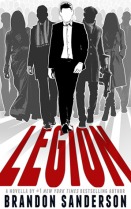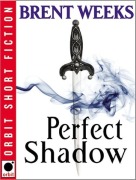I Heart Digital Novellas
HarperTeen (a.k.a. where I work) announced a new digital short-fiction imprint today, an event that inspired me to sit down and write a post I’ve been mulling over for a while. It’s about–you guessed it–digital short fiction. I have some Thoughts.
The first thought is, I love this trend. I’ve said facetiously that I love seeing the word “novella” back in the limelight, which is true; but I also love seeing the form itself become more mainstream. It can be tough to sell readers (and publishers, for that matter) on short fiction. Novellas, let alone short stories, are too short to print on their own; but anthologies are tricky too, and literary magazines have never enjoyed the circulation they should. So although I’ll still choose to read in print over digital any day of the week, I’m genuinely excited to see short fiction carve out a niche in the ebook market.
I say “this trend” above, but really, what we’re looking at is a few different trends. Probably my favorite, though it’s a close contest, is the emergence of original short fiction from established authors. I’m not talking about exclusively self-published authors here; that’s an entirely different ball game. But I love the fact that someone like Brandon Sanderson, who is best known for what we could not under any circumstances call “short” fiction, can now easily publish something like Legion, an 88-page novella completely unconnected to his other works.
Legion isn’t strictly digital-first or digital-only–it has also been issued as a limited-edition hardcover from Subterranean Press–but it’s different from what I expect to see from Sanderson via his usual publisher, Tor. (Did I mention it’s short?) It is essentially self-published as an ebook (Dragonsteel Entertainment, the named publisher, is Sanderson’s company), and it isn’t quite as polished as some of his longer work has been. But it had a fascinating premise and was fun to read, so if he of a million epic projects didn’t have the time or inclination to write it as a novel, I’m happier to have it as an e-novella than not to have it at all.
Moving on with our established authors, digital shorts provide an interesting forum for series. More and more often, we’re seeing digital prequels, interstitials, and pieces exploring alternate viewpoints or characters’ backstories. A lot of this is marketing; some pieces are offered free or free for a limited time, and in any case, short interstitials help keep up momentum during the year(s)-long wait for the series’ next book.
Speaking just as a reader, I don’t really care why I’m getting more content from my favorite authors and characters–just that I am. Having grown up in the age of fan remixes and fanfiction, I’m familiar with works that fit into the cracks of a series, exploring what happened before, after, and most importantly, between moments in the series canon. As a fan, I’m happy to see that mentality taking root with the content creators themselves.
Last but not least, I’d love to see more solo digital reissues of short stories previously available only in print anthologies. Two of the launch titles in the aforementioned HarperTeen Impulse program fall into this category, and I’m glad to see them. For one thing, anthologies have the nasty habit of going out of print. For another, in the vast informational headache that is book metadata, short stories are tough to search for if–heaven forbid–you forget the title or editor of the anthology in question. And keeping one eye on the business of books as a business, which it is, I know I’m not the only reader who’ll sooner plunk down $2 to read a short ebook by an author I know and love than $18 or $25 on an anthology with one story by my favorite and a dozen by authors I’ve never heard of.
That last is unfortunate–the art and craft of building anthologies is a wondrous thing, and I know I’m also not the only reader who will forever be grateful to people like Ellen Datlow and Terri Windling, or the only reader who’s discovered a beloved new author through an anthology. But across the entertainment industries, digital distribution is adapting to consumers who want more choices in how their content is delivered, be it without DRM or without an anthology. I’m just glad to see more people reading short fiction, in whatever format they ultimately choose.




Reblogged this on Official Site of Alex Laybourne – Author and commented:
Has short fiction found its home?
As someone embarking on a large scale novella writing sprint this year, it is great to hear that there are believers in this form of writing.
Reblogged this on Mungai and the Goa Constrictor.